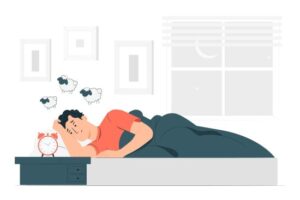
Women’s Day: The Quiet Difficulties That Men and Women Go Through
Come March 8th and the focus and attention is on women. They’ve had their share of struggles in the past to get an equal footing

Come March 8th and the focus and attention is on women. They’ve had their share of struggles in the past to get an equal footing

Stress is really an overused word and yet it is a defining aspect of our current, modern life. When you are in the loop of

Historically, a pandemic seems to have occurred once in a 100 years, roughly. That means, for most of us alive today, this is a completely

Anxiety and coping with it consumes a lot of energy for many of us. If you are prone to anxiety, you know that it feels

Today is World Health Day! We don’t need ‘days’ to look after ourselves. However, they are good reminders to look into anything we might be

Whenever I ask people : How are you? Often the reply is “I am busy” or “I am crazy busy”. Very rarely do I hear

Our last post talked about the difference between fear and a phobia, and what it feels like to have a phobia. Once one knows the implications

Most of us use the ‘word’ phobia rather casually. We often hear such exclamations as, “I really hate Maths… I think I have a phobia

May is Better Sleep Month, so let’s explore sleep, one of the elements of our lifestyle that we don’t pay conscious attention to, unlike dieting or exercising. You must know that not getting enough sleep over a long period of time could signal a deeper psychological concern and can have further implications on your mental health.

In this article, we want to share with you a Stress Scale that we have devised to help you get an idea about the extent to which you might be feeling stressed at work. We spend a considerable amount of our time being at work and when work becomes a stressor, it can impact us significantly and even spill on to other parts of our life. We hope that this Stress Scale also draws your attention to the not-so-obvious signs of stress that you might be experiencing.

We specialize in combining psychotherapy with deep wellness practices like mindfulness and meditation and creating a customized mental health plan for individuals and organisations.
We specialize in combining psychotherapy with deep wellness practices like mindfulness and meditation and creating a customized mental health plan for individuals and organisations.

A young woman from another country moved with her family to live for one year in a town near the monastery. When, in the course of the year she discovered the monastery, she would periodically visit to have discussions with the Abbess. The Abbess introduced her to meditation, which became very meaningful for the young woman.
When the family’s year-long stay was drawing to an end, the young woman asked the Abbess, “In my country there is no Buddhism and no one has even heard about meditation. How can I continue to learn and deepen the practice you have started me on?”
The Abbess said, “When you return home ask far and wide for who, among the wise people, is recognized as having the greatest ability to listen. Ask that person to instruct you in the art of listening. What you learn about listening from such a person will teach you how to further your meditation practice.
― Gil Fronsdal, A Monastery Within: Tales from the Buddhist Path